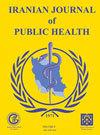Response to Neoadjuvant Chemoradiotherapy as a Predictor of Long-Term Survival in Patients with Locally Advanced Rectosigmoid Junction Cancer: An Analysis Based On SEER Database
IF 1.4
4区 医学
Q3 Medicine
引用次数: 0
Abstract
Background: Neoadjuvant chemoradiotherapy is recommended to locally advanced rectal cancer, especially for the lower and middle ones. However, the role of neoadjuvant chemoradiotherapy in rectosigmoid junction cancer remains undetermined. We investigated whether patients with a good response to neoadjuvant chemoradiotherapy will have a relatively better long-term survival compared with those with no response. Methods: Overall, 1325 patients diagnosed with locally advanced rectosigmoid junction cancer from Surveillance, Epidemiology, and End-Results (SEER) cancer registry database (2004-2014, America) were selected. All of them had received neoadjuvant chemoradiotherapy and were evaluated by Collaborative Stage Data Collection System. We performed Kaplan–Meier univariate analysis and Cox regression multivariate analysis models to estimate the potential prognostic factors of long-term survival outcomes. Response to neoadjuvant chemoradiotherapy and histological type of tumor were the two prognostic factors. Results: The 5-year OS was 78.1% in responders, and 63.4% in nonresponders. In addition the 5-year DSS was 85.1% in responders, and 72.9% in nonresponders. Conclusion: Based on SEER database in locally advanced rectosigmoid junction cancer, patients with a good response to neoadjuvant chemoradiotherapy could have a benefit of long-term survival.对新辅助放化疗的反应作为局部晚期直肠乙状结癌患者长期生存的预测指标:基于SEER数据库的分析
背景:局部进展期直肠癌,尤其是下、中期直肠癌,推荐采用新辅助放化疗。然而,新辅助放化疗在直肠乙状结肠结癌中的作用仍未确定。我们调查了对新辅助放化疗反应良好的患者是否比无反应的患者有相对更好的长期生存。
方法:从2004-2014年美国SEER癌症登记数据库中选择1325例诊断为局部晚期直肠乙状结肠结癌的患者。所有患者均接受了新辅助放化疗,并通过协同分期数据收集系统进行评估。我们采用Kaplan-Meier单因素分析和Cox回归多因素分析模型来估计长期生存结果的潜在预后因素。对新辅助放化疗的反应和肿瘤的组织学类型是影响预后的两个因素。
结果:应答者5年OS为78.1%,无应答者为63.4%。此外,缓解者的5年DSS为85.1%,无缓解者为72.9%。
结论:基于SEER数据库的局部晚期直肠乙状结癌患者,对新辅助放化疗反应良好的患者可获得长期生存。
本文章由计算机程序翻译,如有差异,请以英文原文为准。
求助全文
约1分钟内获得全文
求助全文
来源期刊

Iranian Journal of Public Health
医学-公共卫生、环境卫生与职业卫生
CiteScore
2.20
自引率
7.10%
发文量
0
审稿时长
2 months
期刊介绍:
Iranian Journal of Public Health has been continuously published since 1971, as the only Journal in all health domains, with wide distribution (including WHO in Geneva and Cairo) in two languages (English and Persian). From 2001 issue, the Journal is published only in English language. During the last 41 years more than 2000 scientific research papers, results of health activities, surveys and services, have been published in this Journal. To meet the increasing demand of respected researchers, as of January 2012, the Journal is published monthly. I wish this will assist to promote the level of global knowledge. The main topics that the Journal would welcome are: Bioethics, Disaster and Health, Entomology, Epidemiology, Health and Environment, Health Economics, Health Services, Immunology, Medical Genetics, Mental Health, Microbiology, Nutrition and Food Safety, Occupational Health, Oral Health. We would be very delighted to receive your Original papers, Review Articles, Short communications, Case reports and Scientific Letters to the Editor on the above mentioned research areas.
 求助内容:
求助内容: 应助结果提醒方式:
应助结果提醒方式:


